你知道 to 后面什么时候用verb ing 吗?



VERB OR NOUN?
It's GERUND - 动名词!
VERB USED AS NOUN
credit to grammar.net
THE GERUND AS THE SUBJECT OF THE SENTENCE
- Eatingpeople is wrong.
- Huntingtigers is dangerous.
- Flying makes me nervous.
- Brushing your teeth is important.
- Smoking causes lung cancer.
THE GERUND AS THE COMPLEMENT OF THE VERB 'TO BE'
- One of his duties is attendingmeetings.
- The hardest thing about learning English is understanding the gerund.
- One of life's pleasures is having breakfast in bed.
THE GERUND AFTER PREPOSITIONS
The gerund must be used when a verb comes after a preposition. This is also true of certain expressions ending in a preposition, for example the expressionsin spite of & there's no point in.
- Can you sneeze without opening your mouth?
- She is good at painting.
- She avoided him by walkingon the opposite side of the road.
- We arrived in Madrid after driving all night.
- My father decided against postponing his trip to Hungary.
- There's no pointin waiting.
- In spite of missing the train, we arrived on time.
THE GERUND AFTER PHRASAL VERBS
Phrasal verbs are composed ofa verb + preposition or adverb.
- When will you give up smoking?
- She always puts off goingto the dentist.
- He kept on asking for money.
- Jim ended up buying a new TV after his old one broke.
There are some phrasal verbs that include the word "to" as a preposition for example to look forward to, to take to, to be accustomed to, to get around to, & to be used to. It is important to recognise that the word "to" is a preposition in these cases because it must be followed by a gerund. It is not part of the infinitive form of the verb. You can check whether "to" is a preposition or part of the infinitive. If you can put the pronoun "it" after the word "to" and form a meaningful sentence, then the word "to" is a preposition and must be followed by a gerund.
- I look forward to hearing from you soon.
- I look forward to it.
- I am used to waiting for buses.
- I am used to it.
- She didn't really take to studying English.
- She didn't really take to it.
- When will you get around to mowing the grass?
- When will you get around to it?
THE GERUND IN COMPOUND NOUNS
In compound nouns using the gerund, it is clear that the meaning is that of a noun, not of a continuous verb. For example, with the word "swimming pool" it is a pool for swimming in, it is not a pool that is swimming.
- I am giving Sally a driving lesson.
- They have a swimming pool in their back yard.
- I bought some new running shoes.
THE GERUND AFTER SOME EXPRESSIONS
The gerund is necessary after the expressions can't help, can't stand, to be worth, & it's no use
- She couldn't help falling in love with him.
- I can't stand being stuck in traffic jams.
- It's no use trying to escape.
- It might be worth phoning the station to check the time of the train.
credit to http://www.ef.com/


相关阅读 (戳连接,立即阅读)
Lynn 老师
澳大利亚墨尔本大学
Master of teaching 硕士,雅思写作8分
Certified Tinyhabits coach
BJ-Fogg,斯坦福大学教授创立的最有效行为改变方法,帮你解决拖延症
每天在公众号,网站,优酷,YouTube分享一节免费课程,已经超过110节:D
关注我们的公众好以下关键词

参加66天签到,获得免费范文精讲课程活动,回复“签到” ,
1秒钟搜索范文,回复“搜索”
报名12月免费课程,名额有限,请提前报名,回复“免费”
28天突破雅思写作7分课程,最后2天报名,回复“课程” 了解课程
下载2016年真题范文,回复“范文”
预测范文,回复“预测”
6,7,8分经验分享,回复“经验”
课程如何帮助你解决 雅思写作5大难点



如果你觉得文章还不错,就请点击右上角选择发送给朋友或者转发到朋友圈。您的支持和鼓励是我们最大的动力。喜欢就请关注我们吧~

长按二维码
关注我们
最新评论
推荐文章
作者最新文章
你可能感兴趣的文章
Copyright Disclaimer: The copyright of contents (including texts, images, videos and audios) posted above belong to the User who shared or the third-party website which the User shared from. If you found your copyright have been infringed, please send a DMCA takedown notice to [email protected]. For more detail of the source, please click on the button "Read Original Post" below. For other communications, please send to [email protected].
版权声明:以上内容为用户推荐收藏至CareerEngine平台,其内容(含文字、图片、视频、音频等)及知识版权均属用户或用户转发自的第三方网站,如涉嫌侵权,请通知[email protected]进行信息删除。如需查看信息来源,请点击“查看原文”。如需洽谈其它事宜,请联系[email protected]。
版权声明:以上内容为用户推荐收藏至CareerEngine平台,其内容(含文字、图片、视频、音频等)及知识版权均属用户或用户转发自的第三方网站,如涉嫌侵权,请通知[email protected]进行信息删除。如需查看信息来源,请点击“查看原文”。如需洽谈其它事宜,请联系[email protected]。